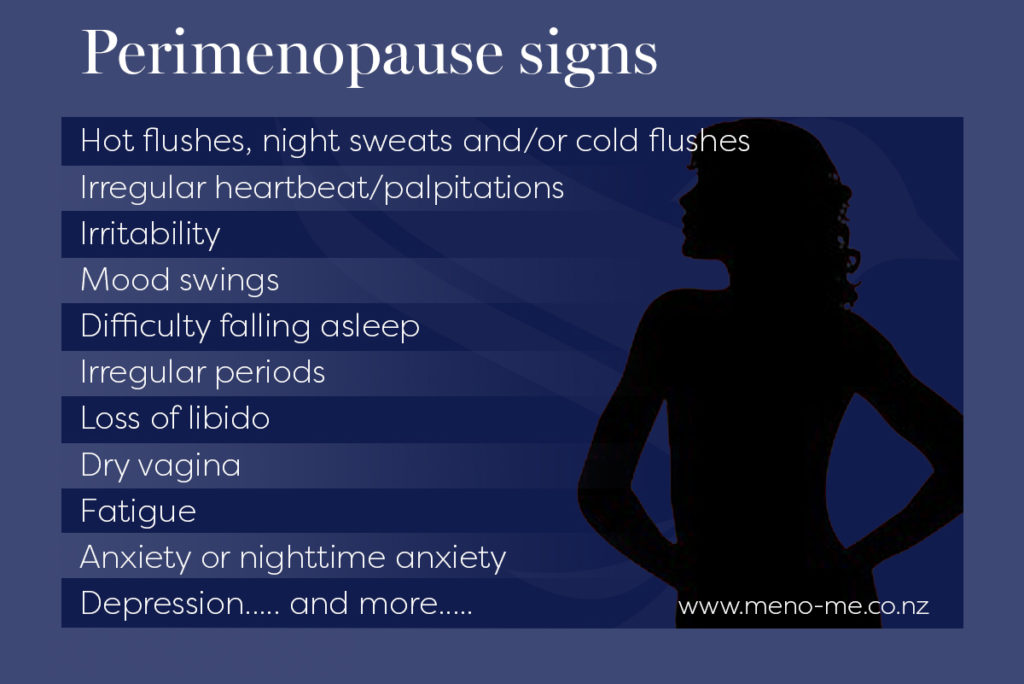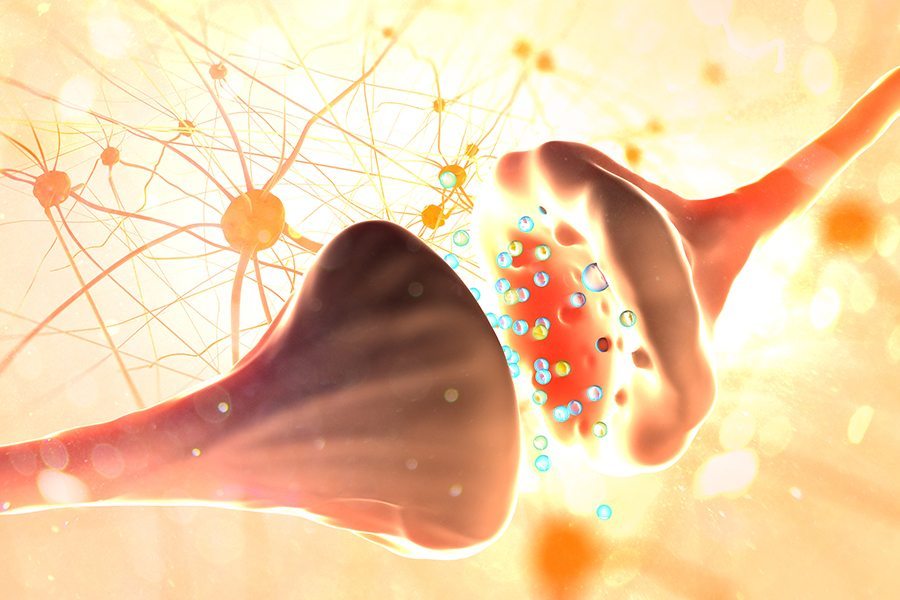We asked biochemist, Peter Lehrke, for the lowdown on anxiety and why it’s such a prevalent ‘thing’ during the meno years.
The psychological signs of menopause
It seems the main physical signs of menopause such as hot flushes, sweats, irregular periods and weight gain are generally well known and understood by most women, and their men too.
But it is the psychological signs that tend to cause the most distress.
Indeed, these signs are often unfathomable and bewildering, and bring on a feeling of being “not myself”. As such, this is very disconcerting and sometimes it’s so bad it drives women literally insane.
What’s more, anxiety, nervousness and depression are at the top of the list of recognised signs and these can be made worse by insomnia and fatigue:

The psychological signs of menopause can be unfathomable and bewildering, and bring on a feeling of being “not myself”. Share on X
For the guys
For you men out there, we can be forgiven for thinking this might be ‘all in her head’, or treating it as if it is not serious and ‘she will get over it’. However, it’s important to realise this is far from the truth.
Mark Twain once said:
“I’ve lived a long and difficult life filled with so many misfortunes, most of which never happened.”
And he was so right. Indeed, much of our anxiety is about things that are unlikely to happen. And – after the fact – we wonder why we worried about it so much in the first place.
However, psychological signs are not rational.
In women, these signs are a direct result of fluctuating hormone levels and are indirectly impacted by some of the physical signs. For example, night sweats that interrupt sleep can leave you feeling tired and vulnerable the next day, and this may trigger nervousness and anxiety.
So what is happening in our heads that causes these feelings of anxiety?
The missing link – neurotransmitters
There are billions of cells in our brains that talk to each other and pass along information using chemical messengers called neurotransmitters.
When one brain cell wants to send a message to another, it releases the correct neurotransmitter. This neurotransmitter floats across a tiny space between the two cells (the synaptic cleft) and the receiving cell ‘catches’ the message in one or more of its ‘catcher’s mitts’ (neuroreceptors).
Although this sounds like a SLOW process, it happens at the speed of light.
Your body has over 50 neurotransmitters.
Following, I give you an overview of the major players and the nutrients they’re made of:
Serotonin
Function: regulates your appetite, mood, sensory perception and immune function.
Deficiency may cause: depression, eating disorders, chronic pain, sleep disorders, emotional problems, anxiety and aggression.
The recipe: the amino acid tryptophan, B vitamins, vitamin C, zinc and iron.
Gamma-amino-butyric acid (GABA)
Function: a calming effect on mood.
Deficiency may cause: anxiety, over-excitability, seizure disorders and mania.
The recipe: the amino acid glutamate, vitamin B6, manganese, biotin, lysine and taurine.
Dopamine
Function: controls your arousal, movement and hormonal responses.
Deficiency may cause: muscular and cell rigidity, tremors and Parkinson’s disease.
The recipe: the amino acids tyrosine or phenylalanine, vitamin B6, folic acid, iron, copper, magnesium and zinc.
Acetylcholine
Function: Controls electrical activity of your brain and is vital for memory storage.
Deficiency may cause: memory loss, depression, confusion and muscle incoordination.
The recipe: the amino acid choline, vitamins B6, B5 and B3, manganese, lysine and threonine.

Medications manipulate neurotransmitters
For this reason, psychiatric drugs achieve their intended effect. This is because they artificially manipulate your levels of neurotransmitters.
For example, some antidepressants block your re-uptake pumps from vacuuming up leftover serotonin. By forcing serotonin to hang around between your brain cells, many people feel ‘happier’. These are called selective serotonin re-uptake inhibitors (SSRI’s).
A better approach
What people don’t realise is that when you help encourage proper levels of neurotransmitters in your body, you can feel a whole lot better. Especially if you’re suffering from mental health disruptions like unhappiness, depression and anxiety.
Therefore, addressing the root cause of hormone imbalances are top priority.
Here are three ways to support those hormones:
Reduce stress
Stress increases the hormones cortisol and adrenalin and for this reason, they’re also known as the stress hormones. Stress increases signs and side effects of peri/menopause and can also cause you to hold onto weight.
Develop an exercise plan
Numerous studies show that gentle exercise is a powerful anxiety buster and antidepressant. Having a plan helps you stay consistent, even at those times when you don’t feel like exercising. Choose a form of gentle exercise you enjoy and do it regularly. Some good ones are walking, jogging, cycling, swimming, yoga, dance, or even gardening.
Merry Peri® and Perky Post®
These offer evidence-backed, botanical support for the body’s natural response to hormonal changes including your mood and energy.
Related: 12 Common Signs Of Depression & Anxiety At Menopause | How To Get Help
Nutritional support for your psyche
In addition to supporting hormonal balance, good nutrition plays an important role in managing the psychological signs of menopause.
For example, fluctuating blood sugar levels are a common trigger of mental health challenges. So, if you find yourself craving sweets, coffee and/or cigarettes (all of which can affect your blood sugar levels) this may be an issue for you.
Common signs of spikes and drops in blood sugar include:
- Difficulty concentrating
- Palpitations or blackouts
- Chronic fatigue
- Mood swings
- Irritability
- Angry outburst or crying spells
Ensure you eat a diet of whole foods (like vegetables, fruits, whole grains, dairy if you can tolerate it, and if you eat meat, then fish and chicken) and ditch the refined carbs.
Whole foods result in a much slower, even, steady supply of glucose to your bloodstream. They’ll also help supply the nutrients for your cells to make those much-needed neurotransmitters.
There are also a number of vital nutrients needed for good mental health. These are:
Vitamin D
Vitamin D is very important for your mood.
In fact, in one study, people with the lowest levels of vitamin D were found to be 11 times more prone to depression than those who had normal levels.
Seasonal Affective Disorder (SAD) is a type of depression that is related to sunshine deficiency. Our bodies produce vitamin D in the skin when exposed to direct sunshine.
This is why depression and SAD are more prevalent in the winter – the winter blues. Getting out in the sun is the perfect way to optimise your vitamin D, but be careful not to overdo it. You certainly don’t want to get burnt.
What’s the right amount of sunshine exposure?
Getting the right amount depends on a lot of factors, including the season (sun angle), your skin type and the amount of skin you expose. As a rule of thumb, if your shadow is longer than you are (ie in winter or morning and evening in summer) then you are not producing vitamin D. Generally, shorts and T-shirt at midday for 10 minutes per day (or 20 minutes every second day etc) is enough.
If the sun is not shining then taking an oral vitamin D3 supplement is highly advisable. It’s why we included Vitamin D3 in Perky Post®. In addition, it contains vitamin K2 which supports the vitamin D3. And if you’re not sure your levels are high enough ask your doctor for a vitamin D blood test.
Vitamin B12
Vitamin B12 is crucial to brain and nervous system function. It helps control a process in your body called methylation. Methylation is vital to the formation of many neurotransmitters, and methylation abnormality is a factor behind mental health problems.
Vitamin B12 is crucial to the brain and nervous system. It helps control a process called methylation, an abnormality of which contributes to mental health problems. Share on X
Low B12 levels can cause a wide range of signs including:
- Lack of energy
- Memory problems
- Sleeplessness
- Mental fog or confusion
- Depression
Current studies report that as many as 25 percent (1 out of 4) people may have or are seriously close to developing a Vitamin B12 deficiency. Again you can be tested for this.
Zinc
Although zinc is only needed by your body in trace amounts, it’s crucial to your mental wellbeing. Indeed, it plays a role in at least 80 different enzyme reactions and is a brain neurotransmitter, helping your brain send messages to different areas of the body.
Zinc deficiency can lead to irritability, chronic anger and poor memory, among other things.
Vitamin B6
Vitamin B6 is involved in over 100 different enzyme reactions in your body, including the all-important one that converts the amino acid tryptophan to serotonin (your body’s natural antidepressant).
It’s no surprise experts estimate that 95 percent of your body’s serotonin is found in your digestive tract.
It’s important to know vitamin B6 deficiency is VERY serious and can lead to irritability, depression and confusion, as well as a weakened immune system.
Magnesium
Magnesium is needed for several enzyme reactions, calcium and potassium absorption, bone formation and nerve transmissions.
A low magnesium level is linked to attention deficit disorder (ADD/ADHD), autism, depression, fatigue and learning disabilities.
To this end, the fenugreek in both Merry Peri® and Perky Post® is high in magnesium.
Calcium
Although it’s best known for helping to build strong bones, calcium is also needed for proper functioning of your nerves and muscles, including nerve conduction and messaging throughout your body.
Deficiencies in calcium have been linked to anxiety, mental confusion, depression, memory loss and hallucinations.
Summary
Good luck with your anxiety and remember Team MenoMe® is here to help. Stay connected and reach out at any time. One of the best ways to do this is by joining the private Facebook group: 40+ Ageless Goddesses. Click here to do so.










